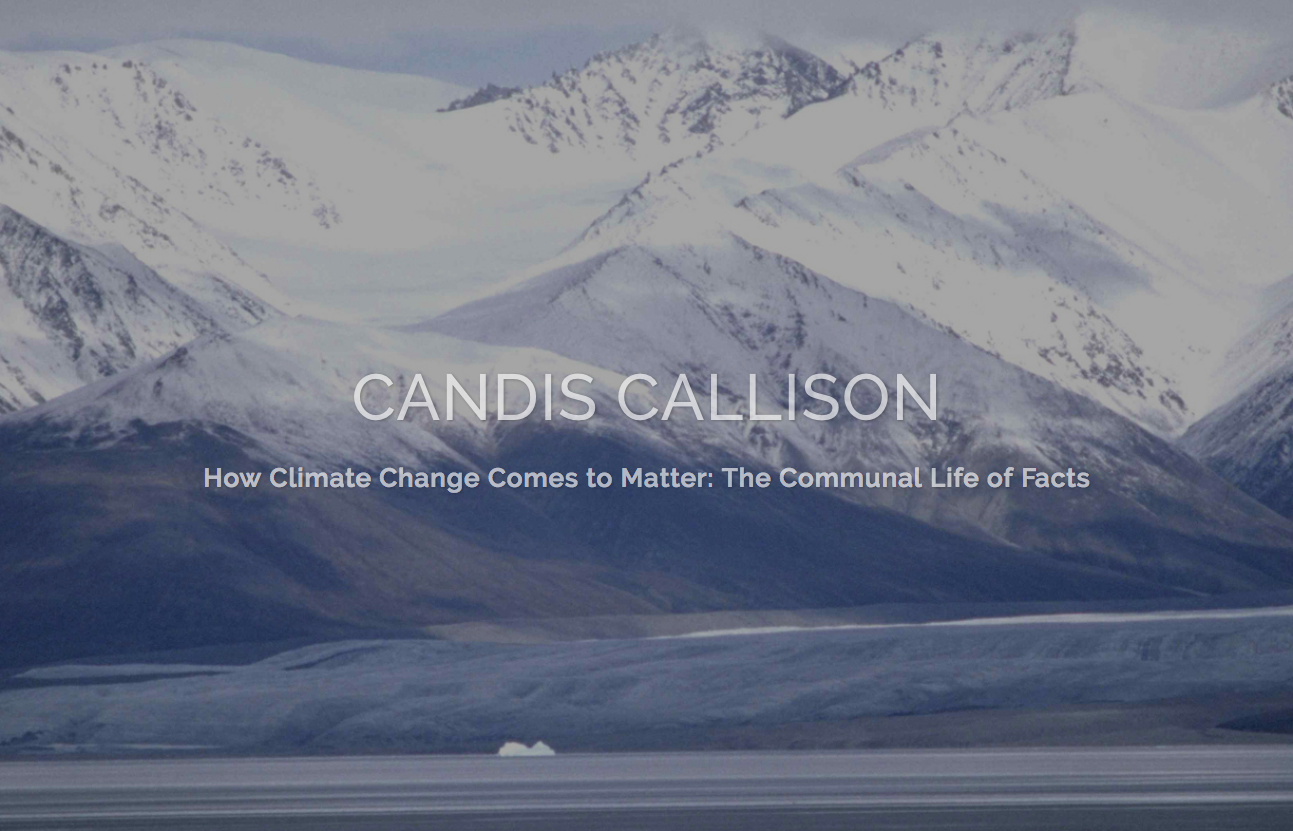Wednesday, November 7, 2018 - 12:00pm to 1:30pm
Room 500
Annenberg School for Communication
3620 Walnut Street
University of Pennsylvania
Philadelphia, Pennsylvania 19104

"Arctic Journalisms, Civic Spaces and Indigenous Publics"
A Talk with Candis Callison
Mobilizing Indigenous experiences with and narratives about climate change through various media provides important insight for broad global publics about what it means to live with climate change both in the observable present and the predicted future. Representing and reporting on diverse Indigenous peoples, however, can be extremely challenging given that mainstream media narratives have often tended to reproduce stereotypes, ignore Indigenous knowledges, erase the ongoing impacts of colonialism, and/or frame Indigenous people as proxies, victims, or heroes. Drawing on research related to media in and about the Canadian Arctic, this talk examines how and where journalism might contribute to communal resilience, historical understandings of adaptation and climatic shifts, and reflect robust civic spaces and imaginations among global and regional audiences that include Indigenous publics.
Candis Callison is an Associate Professor in the Graduate School of Journalism at the University of British Columbia. Her research and teaching are focused on changes to media practices and platforms, journalism ethics, the role of social movements in public discourse, and understanding how issues related to science and technology become meaningful for diverse publics. Callison’s new book How Climate Change Comes to Matter: The Communal Life of Facts (Duke University Press 2014) uses ethnographic methods and a comparative lens to bring together the work of science journalists, scientists, and three distinct social groups that are outside environmental movement and policy frameworks in an American context. Building in part on this research, Callison was recently awarded a SSHRC Insight Grant to look at changes to professional norms, practices, and standards for Canadian Arctic journalists working in an era of environmental change and global audiences. Follow her on Twitter: @candiscallison.
Candis was the original host and co-creator of "First Story," the first news and current affairs series on Aboriginal issues to be broadcast nationally in Canada on CTV; it was later syndicated to APTN. For her early concurrent work in media convergence, she was profiled in the 2003 book, Technology with Curves: Women Reshaping the Digital Landscape. Her independently produced film, Traditional Renaissance was included in UBC Museum of Anthropology’s 2003-04 exhibition on Tahltan culture, “Mehodihi: Our Great Ancestors Lived that Way.” Born and raised in and around Vancouver, Candis is a member of the Tahltan Nation located in northwestern B.C.
Hosted by the Penn Program in Environmental Humanities at the School of Arts and Sciences.
Lunch will be provided to those attending the talk.
--------------------
When data are at risk, public life suffers. Data at Risk is a four-part lecture series addressing the effect of precarious environmental data on efforts to save the environment. Focusing on how journalists, academics, and artists use storytelling and visual tools to foster better awareness of the environment, Data at Risk is co-sponsored by the Center for Media at Risk at the Annenberg School for Communication and DataRefuge of the Penn Program in Environmental Humanities at the School of Arts and Sciences.

 Native American & Indigenous Studies at Penn
Native American & Indigenous Studies at Penn